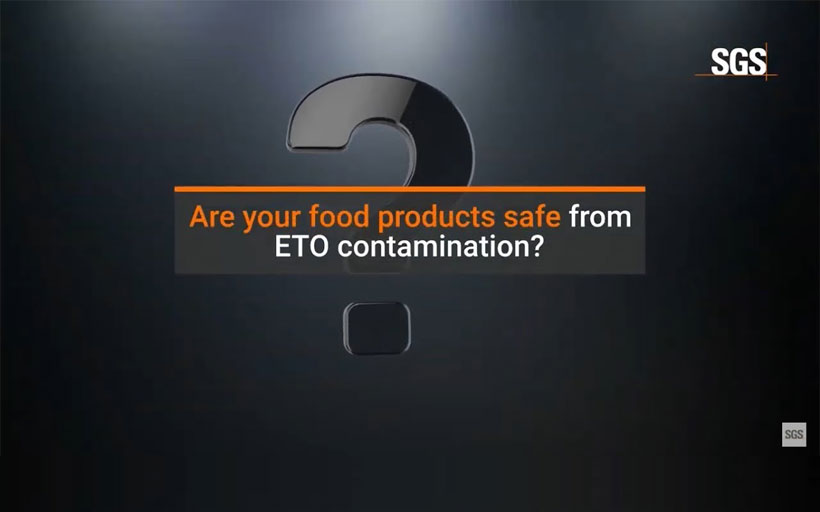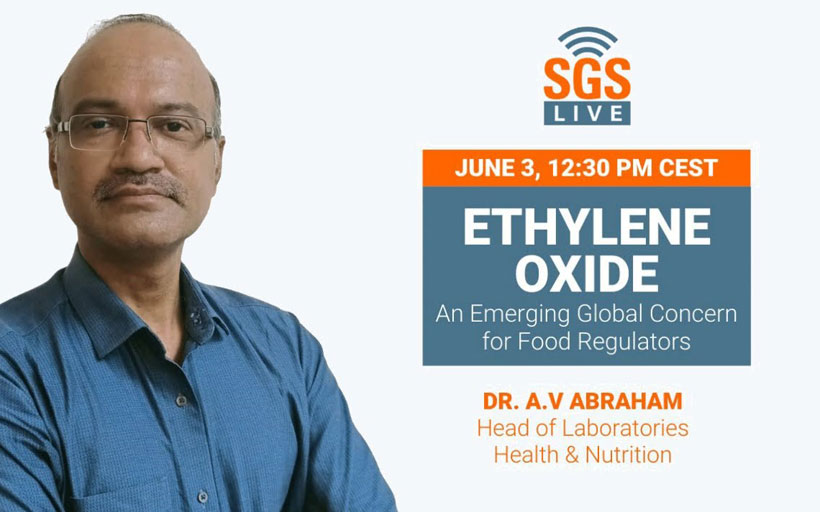Ensure the quality and safety of your food products and protect your brand with Ethylene Oxide residue testing from SGS.
Ethylene Oxide (ETO) is a toxic compound that is used to sterilise food items, spices and medical and pharmaceutical products. Exposure to ETO residue can cause severe health problems.
Additionally, testing for EtO residues before your products are placed on the market protects your brand reputation and prevents financial losses due to product recalls. Food products exported from India must have a Transaction Certificate, issued by a certification body. To obtain such a certificate, there must be a clear EtO test report issued by a laboratory that is duly accredited by NABL to undertake this test.
SGS offers testing for ETO contamination in food products, using Gas Chromatography Tandem Mass Spectrometry (GC-MS/MS), in our NABL accredited food testing laboratories.



